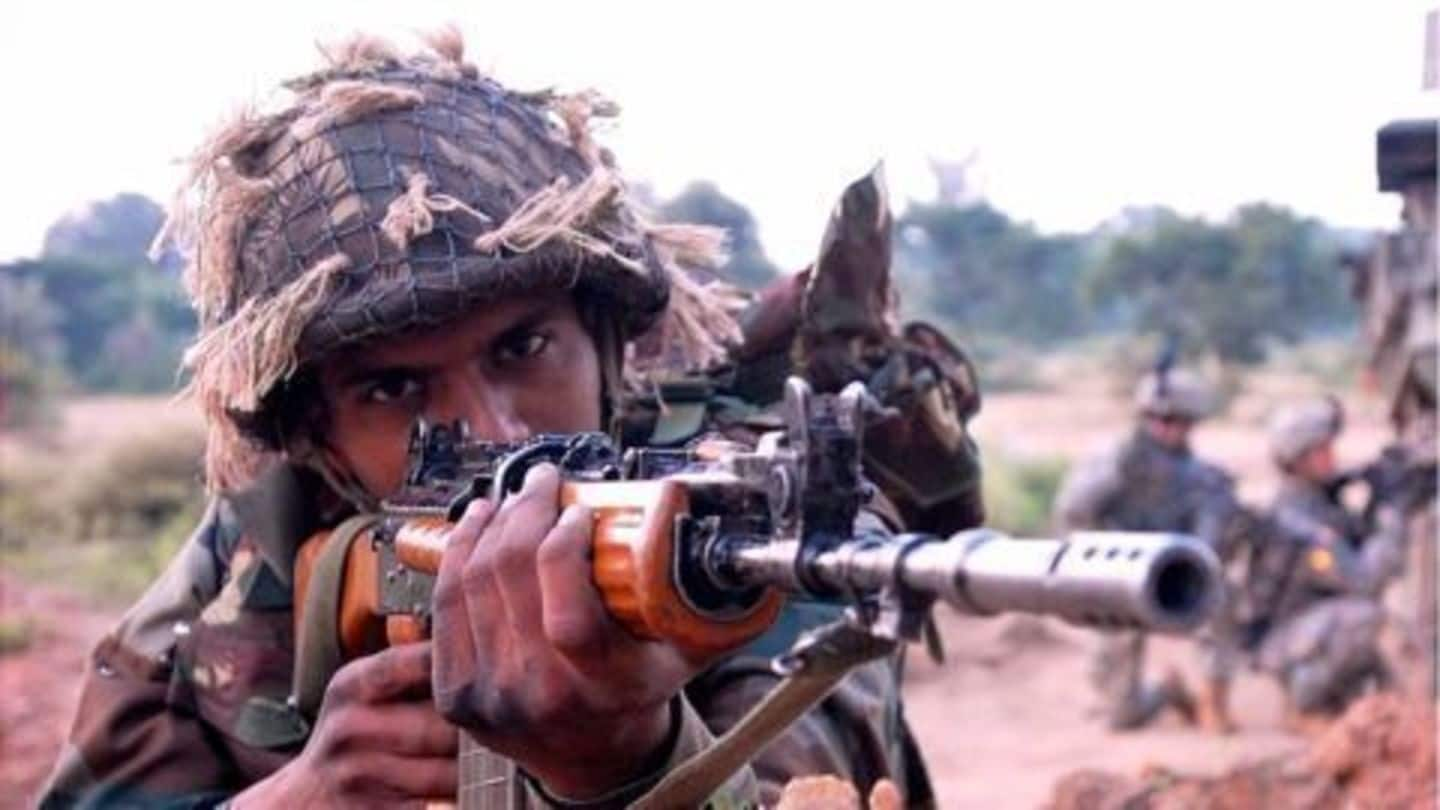
Thousands of jawans forced to skip Diwali
What's the story
Thousands of jawans did not join their families for Diwali, this year; Pakistan's non-stop shelling kept them busy along the 198-kilometre International Border in Jammu.
It was for the first time since the Kargil War that such a huge number of personnel remained on duty during Diwali.
A week after the festival, before returning to their routine task, the jawans distributed sweets and celebrated.
Introduction
Jawans along the LoC
Indian Armed Forces along the 740-kilometre Line of Control (LoC) are in the midst of a nerve-wracking battle following the Uri terror attack and surgical strikes.
The 2003 India-Pakistan ceasefire agreement is now in tatters as the heavy mortar and artillery fire keep the soldiers on their toes.
In the precipitous heights of 9,000 to 14,000 feet, danger is manifold.
Data
Jawans at serious risk
Jawans are now at serious risk, following the surgical strikes. After the attacks, bunkers have been constructed where six or eight soldiers can crouch for safety - provided they have time to respond and run. Bunkers have been set up next to every post.
Life
Life constantly on edge
Jawans' life is constantly on edge.
They stand at attention scanning the ridges and valleys, looking for suspicious changes in the surrounding areas, and straining their ears every time the leaves rustle while having a finger on the trigger regardless of the icy winds or heavy snowing.
They also guard against sniper attacks from the Pakistani side; however, their safety isn't guaranteed.
Information
The sharp, intense proxy war
The soldiers stand at attention for two hours on full alert and rest for the next two hours while looking for infiltrating terrorists, counter attacking Pakistani Rangers and Battle Action Teams (BATs) comprising Lashkar-e-Taiba and Jaish-e-Mohammad.
Breaches
The troops have to be on maximum alert
India can't afford a breach along the International Border or LoC and face another attack like those in Pathankot, or Uri and soldiers have to be alert.
Troops get a daily reminder of what 'DIE' stands for: Detect, Identify, Eliminate.
The danger of shooting one of the soldiers is high; hence they are ordered not to fire until they have established the terrorist's identity.
Infiltrations
The border at its most volatile
The Indo-Pak border is at its most volatile as India has shrugged off its self-imposed restriction of opening its artillery weapons.
The Army installed Anti-Infiltration Obstacle Systems (AIOS) and fenced several parts on LoC.
However, highly-motivated terrorists attempt to infiltrate; 70 such attempts have been made in 2016, so far.
Soldiers carefully watch and check if someone has tried to cut the fence.
Attacks
Posts beyond fences, extremely vulnerable
Several Indian Army posts, beyond the fences, are extremely vulnerable.
Sepoy Mandeep Singh was at such location when he was attacked and his body mutilated; another soldier Hemraj was also beheaded three years ago.
Surat Singh was attacked after he noticed movement and infiltrators approaching him with grenade launchers.
The BATs quickly, stealthily retreat as their commanders in the Pakistani Army provide cover fire.